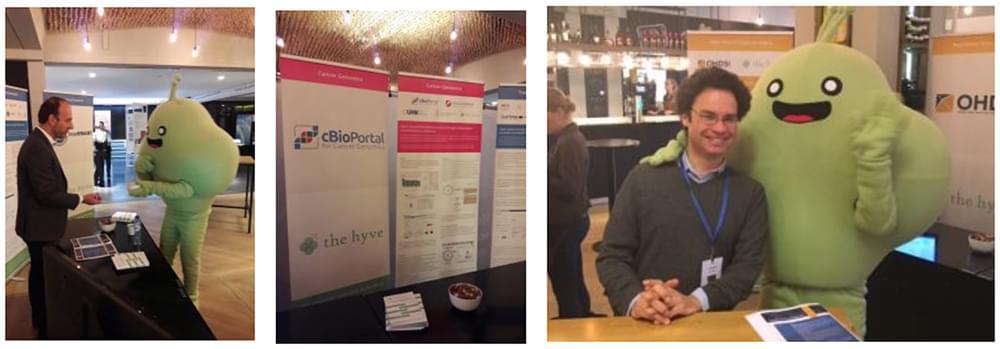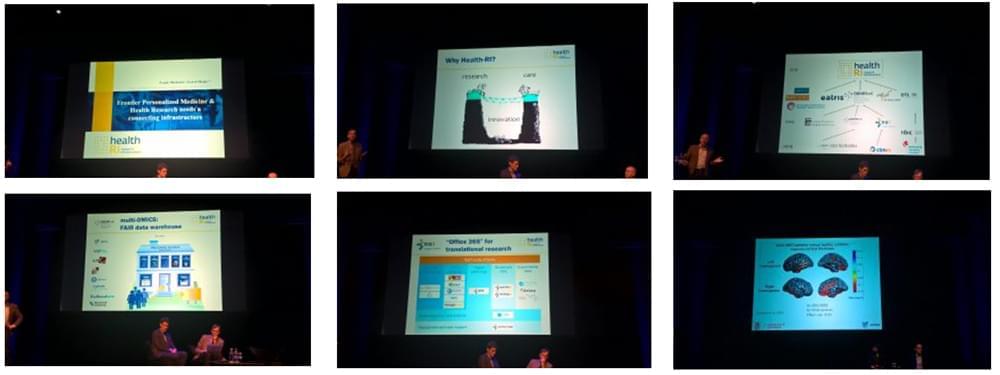We recently visited Health RI, a conference on research infrastructure, personalized medicine and health care. Organized by BBMRI-NL, ELIXIR-NL, EATRIS-NL, DTL, FHI and FMS, and with The Hyve being one of the sponsors, the conference focused on the current state of research infrastructure and its integration with medical/healthcare IT infrastructure in the Netherlands, challenges in sharing research data and patient data and the importance of patient involvement in maintaining their electronic health data.
The Hyve was represented by a number of people - Kees van Bochove, Harry van Haaften, Ilona Pinter, Jochem Bijlard, Marinel Cavelaars and Irina Pulyakhina - which was very helpful, as our exhibition booth was rather busy throughout the day, with the majority of questions being asked about tranSMART (and especially tranSMART 17.1) and open-source solutions for hospital infrastructure support. A lot of visitors of our booth were led to us by Hyvie, this time represented by Marinel.

We also got to present two posters at Health RI. One, made by Julia Kurps and presented by Irina Pulyakhina, introducing the RADAR-CNS project, funded by IMI. Our poster highlights the aim of RADAR-CNS and explains how the consortium plans to investigate the potential of wearable devices and smartphone technology for remote monitoring of patients with brain disorders. We also illustrate technology stack and general infrastructure. In one of the first pilot studies we will explore the suitability of data from wearable devices for monitoring of epilepsy patients and for seizure prediction. The main questions were “Which are the best (most accurate) wearable devices” and “How long in advance do you think you can predict seizures”. As the project has only started, we need to wait a bit before it’s over to answer such questions, so stay tuned for that!
The second poster made and presented by Jochem Bijlard was dedicated to tranSMART and how we are trying to make it FAIR. The poster highlights the implications of the FAIR paradigm for a translational data warehouse and letter by letter discusses the opportunities of making tranSMART data findable (e.g., via adding detailed metadata which can be available through a FAIR point), accessible (e.g., via adding metadata for retrieving access credentials), interoperable (e.g., by making tranSMART ontology-aware to improve interoperability between datasets) and reusable(sharing data strictly with appropriate licensing will be the first step to transform tranSMART from a data warehouse to a data store for reusable data).

We also visited some great talks followed by lively panel discussions. This year Health RI thoroughly discussed personalized medicine, the necessary research and IT infrastructure for health care and and health research needs, translating science into hospital practice and clinical setting, and the importance of patient involvement in e-health and keeping their e-health records up to date as much as it is possible for them.

This year Health RI was organized for the second time, and the amount of discussion after the talks and during panels, the amount of interest in exhibition booths and posters shows that the conference was a success. So we hope to participate in and sponsor Health RI next year as well!


